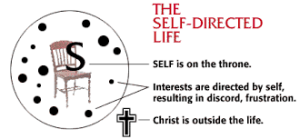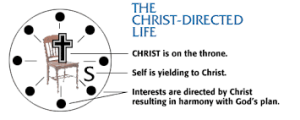Those who love military history may remember an event known as, “The Great Raid.” [1] God is involved in a great rescue operation. He wants to deliver us from our captivities. He wants us to join him in his Kingdom of Light to which he draws us by his love. Happy Valentines Day!
 In January 1945,121 volunteer U.S. Army Rangers, with a few “Alamo Scouts” and Filipino freedom fighters, conducted a rescue mission to save more than 500 allied survivors of the Bataan Death March. Early in World War II, the Bataan Peninsula fell to the Japanese. About 500 American and Allied soldiers were eventually sent to the Cabanatuan prison camp. The conditions in the camp were terrible. There was disease, malnourishment, brutality, and torture. By early 1945, it was clear that the Japanese were losing the war, and the Philippines were certain to be conquered by American forces. The Japanese High Command ordered that the prisoners be killed if there was a danger of their liberation. After an early atrocity at another camp, the Allied High Command determined to rescue these prisoners. I don’t have time to tell the entire story. However, on January 30, 1945, 513 prisoners were rescued. I do want to mention that Lt. Col. Henry Mucci was in overall command; and Capt. Robert Prince led the raid.
In January 1945,121 volunteer U.S. Army Rangers, with a few “Alamo Scouts” and Filipino freedom fighters, conducted a rescue mission to save more than 500 allied survivors of the Bataan Death March. Early in World War II, the Bataan Peninsula fell to the Japanese. About 500 American and Allied soldiers were eventually sent to the Cabanatuan prison camp. The conditions in the camp were terrible. There was disease, malnourishment, brutality, and torture. By early 1945, it was clear that the Japanese were losing the war, and the Philippines were certain to be conquered by American forces. The Japanese High Command ordered that the prisoners be killed if there was a danger of their liberation. After an early atrocity at another camp, the Allied High Command determined to rescue these prisoners. I don’t have time to tell the entire story. However, on January 30, 1945, 513 prisoners were rescued. I do want to mention that Lt. Col. Henry Mucci was in overall command; and Capt. Robert Prince led the raid.
During the raid, many prisoners could hardly believe they were being rescued. One prisoner resisted even when he was told the rescuers were Americans. The prisoner, who had not seen an American uniform since 1941, said, “No Yank ever wore a uniform like that!” One prisoner said the following: “I think I was the first American out of the prison camp. First thing I knew I was standing outside with a big yank. His name was Capt. Prince of Seattle Washington, and the first thing I did was grab the captain and hug and kiss him right there.” You see, after so many years in a living hell, he had been rescued, and he was thankful for his deliverance!
Prayers for a New Church
The letter of Paul to the Colossians is one of the letters called “Prison Epistles.” Somewhere around the year 60 A.D., while Paul was in prison in Rome, he wrote a letter to the church at Colossae, a small city in what we know today as Turkey. The little church had some problems, and so Paul set out to write them a letter. Paul begins his letter by thanking the Colossians for the faith, hope, and love they are sharing throughout the world (Col. 1:3-7). Then, he prays that they will receive spiritual wisdom (v. 9), that they will live a life worthy of Christ (10), and that they will have the strength that only the Holy Spirit can give so that they might be empowered to live the Christian life in difficult circumstances (v. 11).
The little church had some problems, and so Paul set out to write them a letter. Paul begins his letter by thanking the Colossians for the faith, hope, and love they are sharing throughout the world (Col. 1:3-7). Then, he prays that they will receive spiritual wisdom (v. 9), that they will live a life worthy of Christ (10), and that they will have the strength that only the Holy Spirit can give so that they might be empowered to live the Christian life in difficult circumstances (v. 11).
Our text picks up as Paul is giving thanks for the Colossians:
For this reason, since the day we heard about you, we have not stopped praying for you. We continually ask God to fill you with the knowledge of his will through all the wisdom and understanding that the Spirit gives, so that you may live a life worthy of the Lord and please him in every way: bearing fruit in every good work, growing in the knowledge of God, being strengthened with all power according to his glorious might so that you may have great endurance and patience, and giving joyful thanks to the Father, who has qualified you to share in the inheritance of his holy people in the kingdom of light. For he has delivered us from the dominion of darkness and brought us into the kingdom of the Son he loves, in whom we have redemption, the forgiveness of sins (Colossians 1:9-14).
Let us Pray: O God, our Deliverer: this Lenten season we pray that you would come by the power of your Holy Spirit that each one of us might experience your saving grace in the new and precious way. In Jesus Name, Amen
The Gospel of Deliverance.
Sometimes, we have too small a view of our salvation. We reduce the gospel to a way to experience heaven when we die. Unfortunately, this is not what Jesus or the apostles meant by Good News. Did you notice that, in what I read to you a few moments ago, Paul tells the Colossians that they have become citizens of the “kingdom of light,” having been rescued from the kingdom of darkness (Col. 1:12-13). It is as if the Colossians had been trapped in a dark world in which there was no light. God by his mercy has rescued or delivered them from their dungeon and brought them into the Kingdom of Christ—a heavenly kingdom—a kingdom described by John as being like the city as beautiful as a bride descending to dwell in among men (Rev. 21:1-3; 22:1-5).
The British scholar, N. T. Wright, has written a new book entitled, “Simply Good News: Why the Gospel is News and What Makes It Good.” [2]  In his book, Wright emphasizes that the Good News is not just about getting forgiven for being a sinner and going to heaven when we die. The Good News is that a New King has come to establish a New Kingdom, and we are called to give up our citizenship in our earthy kingdoms of darkness and become citizens of this New Kingdom. Jesus was not killed by the Romans for claiming to be God; he was killed by the Romans for claiming to be a king (See, Matthew 27:37; Mark 15:17-18).
In his book, Wright emphasizes that the Good News is not just about getting forgiven for being a sinner and going to heaven when we die. The Good News is that a New King has come to establish a New Kingdom, and we are called to give up our citizenship in our earthy kingdoms of darkness and become citizens of this New Kingdom. Jesus was not killed by the Romans for claiming to be God; he was killed by the Romans for claiming to be a king (See, Matthew 27:37; Mark 15:17-18).
Wright describes what Jesus was about as follows:
“Jesus wasn’t content to leave existing structures in place and start of a nice, quiet unobtrusive movement somewhere else. He didn’t want the rest of the world to go on with its idea of kingship while he started a sect, a separatist movement that wouldn’t challenge that notion. That might have been the effect of allowing human rulers to keep the word “king” while choosing a different slogan altogether. What he was doing was far more radical. Not only was Jesus plugging into the ancient scriptural promises that spoke of God coming back at last to be king of his people and the whole world. He was insisting that this kingdom of God, this new reality, the heart of his good news, was a different sort of rule based upon a different sort of power. And that it was designed to challenge the present powers of the world with a new kingship that would trump theirs altogether.” [3]
Like all kingdoms, Jesus did not expect his kingdom to be established without trouble. This is why Jesus foresaw his death (Matt. 26:2). The struggle for the Kingdom is also reflected in Paul’s letter to Ephesians when he says:
Finally, be strong in the Lord and in his mighty power. Put on the full armor of God, so that you can take your stand against the devil’s schemes. For our struggle is not against flesh and blood, but against the rulers, against the authorities, against the powers of this dark world and against the spiritual forces of evil in the heavenly realms. Therefore put on the full armor of God, so that when the day of evil comes, you may be able to stand your ground, and after you have done everything, to stand. Stand firm then, with the belt of truth buckled around your waist, with the breastplate of righteousness in place, and with your feet fitted with the readiness that comes from the gospel of peace. In addition to all this, take up the shield of faith, with which you can extinguish all the flaming arrows of the evil one. Take the helmet of salvation and the sword of the Spirit, which is the word of God. And pray in the Spirit on all occasions with all kinds of prayers and requests. With this in mind, be alert and always keep on praying for all the Lord’s people (Ephesians 6:10-18).
The rulers of the people and Pontius Pilate did not understand exactly what Jesus was about; they could not understand the true nature of the Kingdom of Heaven. However, they correctly understood that Jesus intended to found a Kingdom that would eventually supplant or at least threaten their kingdoms. Religious leaders, for religious reasons, and political leaders for political reasons couldn’t really tolerate his claim of Jesus. And that’s why he was crucified. The rulers of this world, the powers and principalities, also resist our entry into God’s Kingdom of Light and our spiritual growth after we enter God’s kingdom.
What does this mean for us? It means that right now, today, we are called to follow a new king. We are called to resist our culture, our natural impulses, our friends, and/or impulses when they would lead us into a kingdom of darkness instead of the kingdom of light. We are not just called to be saved; we are called to be changed and to change. We care called to become new people fit to inhabit a New Kingdom of Light and Love.
The First Conquest: the Conquest of Self.
As Paul lets us know in Colossians, the first step in becoming citizens of the Kingdom of God is to be delivered by Grace from the Kingdom of Darkness (Col. 1:13). [4] The word “deliverance” has gotten a bad name among Christians because some people, when they talk about deliverance, only want to talk about demons. The word “deliverance” is used over and over again in the Old Testament and in the New Testament. The words used for “salvation” or “rescue” in Hebrew and Greek can, and often are, translated “deliver”. [5] The word used in Colossians also carries the connotation of been moved to another situation or place.
In the Old and New Testaments, God is often seen rescuing his people. God delivers the Jews from captivity in Egypt and delivering them into the Promised Land. God rescued David from the hands of his enemies and delivered the Kingdom into his hands. God rescued the Jews from captivity in Babylon and delivered them home to the Promised Land. In the same way, in the New Testament God rescued Jesus from the grave restoring him to an eternal life. God delivers those who are sick from their diseases to health. God delivers the demon possessed from their demons to sanity. God is a God of deliverance, which means that God is in the business of moving people and nations from one state to a better state!
The delivering power of God means that we can and should pray to God for deliverance—to be rescued from our captivity to dark powers in and around us and delivered to a better state! We should pray to God to be delivered from our captivity to our secret sins, to our character flaws, to our brokenness, and to our unwillingness to change. Wednesday night, we had an Ash Wednesday service, during which we talked about the meaning of Lent and the meaning of the ashes. The ashes remind us that we are finite, mortal, flawed, sinners in need of salvation and a Savior. The good news we celebrate is that Christ is a conqueror who can deliver us.
Coming into the Kingdom.
Several months ago, I used an illustration that we have been learning in Salt & Light. [6] Imagine a throne. The throne symbolizes your life. In the beginning, most of us want to sit on the throne of our lives. We make mistakes, we betray others, we commit injustices, we do immoral things, we hurt ourselves, and we suffer. Then, imagine a second throne. You’re still on the throne, but somewhere sitting at your feet there is God. God is there to help you manage your life when you get into trouble. Most Christians spend most of their lives in exactly this situation. Finally, imagine Christ on the throne of your life and you sitting at Christ’s feet. Now, you are part of God’s kingdom, filled with the wisdom and love of God, you live in fellowship with God, the world, and others. You are in a better place.
A week or two ago, I came up with another illustration. Since it’s Valentine’s Day, I think it’s a good day to share with you. Imagine a huge heart.  Inside of that heart, there are three interlocking circles representing the Father, the Son, and the Holy Spirit bound together in eternal, unending, self-giving love. Imagine yourself far away from that heart. This is life lived without any relationship to God. Then, imagine yourself right at the edge of the heart with, perhaps, one arm kind of holding the heart in case you need it. That’s most of us: we want to be near God, we want to be able to touch the heart of God when we really need to, but we don’t want to get too close. Finally, imagine yourself being drawn inside the heart until you are surrounded by the love of God. Imagine your entire personality being permeated and changed by that transforming love. That’s what being in the kingdom of God means. [7] To be in God’s Kingdom is to be drawn into the place of deep love and peace we have always dreamed of experiencing.
Inside of that heart, there are three interlocking circles representing the Father, the Son, and the Holy Spirit bound together in eternal, unending, self-giving love. Imagine yourself far away from that heart. This is life lived without any relationship to God. Then, imagine yourself right at the edge of the heart with, perhaps, one arm kind of holding the heart in case you need it. That’s most of us: we want to be near God, we want to be able to touch the heart of God when we really need to, but we don’t want to get too close. Finally, imagine yourself being drawn inside the heart until you are surrounded by the love of God. Imagine your entire personality being permeated and changed by that transforming love. That’s what being in the kingdom of God means. [7] To be in God’s Kingdom is to be drawn into the place of deep love and peace we have always dreamed of experiencing.
Response to Grace.
If we truly understand what God has done for us in Christ and what God wants for us, we will be overcome by the love of God. I hate to use two military illustrations in one sermon; however, as we celebrate Christ as deliverer, I think the movie, Saving Private Ryan has an important message. [8] If you remember, at the very beginning of the movie an old man is walking down the rows of a cemetery in Normandy, France. He finally finds one grave. He stands there, and then collapses in tears.  The man is James Francis Ryan. In the movie, Capt. John H Miller, played by Tom Hanks, and a small squad of men are asked to rescue the last surviving son of a woman who is already lost three children in the Second World War. Capt. Miller is not particularly anxious to set out on this mission, but he goes, and in the end saves Private Ryan. During the final moments of the rescue operation, Miller is killed. In his last moments, Miller asks Ryan to earn his rescue.
The man is James Francis Ryan. In the movie, Capt. John H Miller, played by Tom Hanks, and a small squad of men are asked to rescue the last surviving son of a woman who is already lost three children in the Second World War. Capt. Miller is not particularly anxious to set out on this mission, but he goes, and in the end saves Private Ryan. During the final moments of the rescue operation, Miller is killed. In his last moments, Miller asks Ryan to earn his rescue.
God has decided to mount a rescue operation. He has decided to deliver us from our sin, from our brokenness, from our poor thinking and foolishness, and from all of our brokenness into his Kingdom. In order to do this, he had no choice but to send his Son, his Only Son, his Beloved Son. It so happens, that his son, like Captain Miller was killed in the operation. That’s how much God loves us.
Now, we have a choice. We can deny the whole story and live on the basis of our own desires. We can just fondly remember what Jesus did on the cross, only really responding when we are in trouble. Or, we can allow ourselves to be drawn into the heart of God, trusting that the same God who sent his Only Begotten Son to give us eternal life can be trusted to save us from ourselves and deliver us to a much better place. God can be trusted to rescue us from whatever keeps us from experiencing the joy of his Kingdom of Love and to deliver us into that place where we can experience the life of which we have always dreamed.
Amen
Copyright 2016, G. Christopher Scruggs, All Rights Reserved
[1] You can learn more about the Great Raid at wikipedia.org/wiki/The_Great_Raid. The quote below is from an interview with Captain Prince in his 85th year, as he remembered the raid. Several movies have been made about the raid, including one called, “The Great Raid.” Captain Prince was 25 when he led the raid.
[2] N. T. Wright, Simply Good News: Why the Gospel is News and What Makes It Good (New York, NY: HarperOne, a division of Harper Collins, 2015). In this section, I am drawing heavily on this book.
[3] Id, at 63.
[4] As I point out below, the word translated “rescue” in Colossians can be and is sometimes translated “deliver” in the King James, Revised Standard, New King James, and other versions.
[5] There are several words used in the Old Testament for “deliver.” God is often characterized as the deliver of his people (See, Psalm 91 for example). In the New Testament, there are also several words translated as “deliver,” which can be used for both physical and spiritual deliverance. “Sozo,” which means “save” can also mean “rescue” or “deliver.” In Colossians1:13, “errusato” means rescue or deliver by moving from one place or condition (dominion of darkness) to another (the kingdom of light).
[6] For those who have missed it, Kathy and I are writing a new discipleship curriculum we call “Salt & Light. Last spring, we had a preliminary class. This year, we have a draft curriculum and are going through it with three different groups at Advent Presbyterian Church. We hope to complete the writing portion of the curriculum before the fall of 2016.
[7] In the Greek, there is a form called, “the spherical dative.” This tense is used when, for example, Paul speaks of “being in Christ.” The notion of the spherical dative is one of being surrounded by, in the sphere of the power of, the object. By the power of God’s Grace, which is his self-giving love, a Christian should be drawn ever deeper into the sphere of the power of God, surrounded by the wisdom and love of God.
[8] Saving Private Ryan, wr. Robert Rodat, dir. Steven Spielberg, starring Tom Hanks, Matt Damon, and Tom Sizemore. (Amblin Entertainment, Dreamworks, 1998). The movie is based on a true story from the Second World War. The Niland brothers were four siblings from New York. Although two brothers survived the war, there was a time when the Allied Command believed only one brother had survived the war. They therefore had what they assumed was the final surviving son, Fritz, sent home.Bob Niland was killed at D-Day. Preston Niland was also killed on D-Day. The final brother, Edmund, was missing and presumed dead, but was in a Japanese prisoner of war camp.




























































